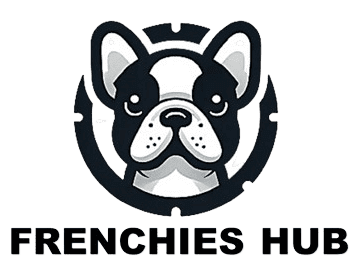When pet owners first bring a Frenchie into their homes, they are often surprised to discover that these charming pups can suffer from allergies to specific ingredients found in their food. Despite carefully selecting high-quality food from the food market, which boasts of top ingredients with minimal fillers, our canine companions may still face intolerance and allergic reactions to certain components. It’s important to acknowledge this reality and understand the difference between a food allergy and food intolerance in French bulldogs.
A food intolerance typically means your dog has difficulty digesting a particular ingredient, such as dairy, leading to digestive issues. On the other hand, a food allergy triggers an immune response causing various adverse reactions.
French bulldogs, like other dog breeds, can suffer from food allergies that cause significant discomfort and health issues. This blog aims to discuss the top foods that are commonly allergic triggers and provide tips to help you keep your Frenchie happy and healthy. Drawing from personal experience and expertise, I’ve navigated these challenges with my own French bulldog, exploring the nuances of dietary sensitivities in these unique pets.
What is Food Allergies in French Bulldog?
Navigating the world of food allergies in French bulldogs is akin to piecing together a complex puzzle. These allergic reactions are not just a minor inconvenience; they can significantly impact the well-being of our beloved pets. The culprits? Specific proteins found in certain ingredients that can trigger a range of symptoms from skin problems like hives and itching, to gastrointestinal issues such as diarrhea and vomiting, and even respiratory symptoms including sneezing and coughing.
Identifying these allergens is crucial, as virtually any food can potentially cause an allergic reaction in French bulldogs, making some ingredients more commonly associated with allergies than others. Through my journey with my own Frenchie, I’ve learned that understanding and managing these allergies requires patience, observation, and a willingness to adapt their diet to ensure they remain healthy and happy.
Top Allergenic Foods for French Bulldogs
Embarking on the journey with my French Bulldog, I’ve delved deep into the intricate dance of managing his diet, a challenge punctuated by the need to sidestep foods that could trigger allergic reactions. This exploration, shaped by both personal experiences and a wealth of research, illuminated the stark reality of common allergens lurking in seemingly innocuous foods.
Common Protein Sources
At the forefront of our dietary discoveries was Chicken, an allergen notorious for its propensity to induce skin irritation and digestive issues. This revelation was paralleled by our experiences with Beef, another protein source that, despite its nutritional benefits, led to adverse skin and digestive problems due to its specific protein composition. The waters of dietary management grew murkier with Fish, a healthy protein source that, to our dismay, also harbored potential allergens for some Frenchies, including mine, particularly types like white fish and salmon.
Dairy and Eggs
Our culinary journey ventured into the realm of Dairy and Eggs, territories fraught with hidden dangers. Dairy products, once believed to be benign, unleashed a spectrum of gastrointestinal turmoil, from gas to diarrhea, attributed to lactose intolerance. Eggs, particularly the proteins found in egg whites, joined the list of culprits, eliciting digestive upset and prompting a reassessment of their place in his diet.
Grains and Soy
As we navigated the complex landscape of canine nutrition, Grains and Soy emerged as sources of discomfort. The discovery that corn and wheat could disrupt my Frenchie’s digestive harmony underscored the value of grain-free diets. Meanwhile, Soy lurked as a deceptive adversary, its proteins capable of triggering both allergic reactions and digestive upsets, compelling a vigilant examination of food labels.
Additional Allergens
The gauntlet of potential allergens extended beyond the primary categories of proteins and grains. Artificial Additives, pervasive in processed foods, posed a significant threat, necessitating a shift towards minimally processed options. Equally treacherous were Certain Vegetables — onions, tomatoes, and garlic — staples in human diets yet toxic to our canine companions. And the peril of foods High in Fat, capable of precipitating gastrointestinal issues and pancreatitis, reinforced the imperative to prioritize his health over the convenience of table scraps.
Strategies for Managing Food Allergies in French Bulldogs
Navigating the dietary landscape for French Bulldogs with food allergies requires patience, vigilance, and a proactive approach. As someone who has tread this path, I’ve learned that understanding and managing food allergies in these charming canines is not just about avoiding certain foods—it’s about a comprehensive strategy that involves several key steps.
Consult Your Veterinarian
When you first notice your Frenchie suffering from allergic reactions, it’s crucial to consult with your vet. Their expert guidance is indispensable in the elimination of allergens from your dog’s diet. This step isn’t merely about treatment; it’s about forming a partnership with your vet to ensure your pet’s health and well-being.
Switch to Hypoallergenic Food
Upon consultation, your vet may recommend switching to hypoallergenic dog foods. These foods often contain novel protein sources, like duck, and are specially designed to decrease the risk of allergic reactions. This switch can be a game-changer, providing your Frenchie with relief and a happier life.
Read Labels Carefully
Reading labels becomes a crucial habit when dealing with food allergies. Whether you’re picking out treats or dog food, always ensure you avoid allergens by choosing products that clearly state they are “free from allergen.” This simple step can significantly reduce the likelihood of accidental exposure to allergens.
Home-Cooked Meals
Preparing home-cooked meals can be a safe and enjoyable way to feed your Frenchie, ensuring they consume only safe ingredients. This approach allows you to control exactly what goes into their diet, minimizing the risk of allergic reactions.
Gradual Transitions
When changing your Frenchie’s diet, always opt for gradual transitions. This method helps their digestive system adapt to the new food without causing upset. A slow and steady approach is key to avoiding additional stress on their system.
Keep a Food Diary
Keeping a food diary is an invaluable tool in managing allergies. Record everything your Frenchie eats and any allergic reactions that occur. This record will help your vet better understand and identify potential allergens affecting your dog.
Avoid Table Scraps
It’s tempting to share your meals with your furry friend, but limiting food treats and table scraps is essential. They can be a hidden source of allergens and disrupt the carefully managed diet of your Frenchie.
Regular Grooming
Beyond diet, regular grooming plays a vital role in managing allergies. It can alleviate symptoms and prevent infections, making it a crucial part of the overall care for French Bulldogs with food allergies.
Adopting these strategies has not only helped me manage my Frenchie’s food allergies but also brought us closer. Through careful observation, adjustments, and continuous learning, we’ve navigated the challenges of food allergies together, ensuring a happy and healthy life for my beloved pet.
Wrapping Up: Navigating Allergies for Frenchies
Navigating the journey of food allergies in French Bulldogs is a testament to the love and care we have for our beloved furry friends. Understanding that these allergies are a significant source of discomfort and health issues is the first step towards fostering a happy and healthy life for your Frenchie. It’s been my experience that becoming aware of the top foods to which French Bulldogs are commonly allergic, and taking proactive steps to manage their diet, can significantly impact their well-being.
Consulting with a veterinarian for guidance on managing food allergies is crucial. Their expertise in providing the best care can help you tailor a well-balanced and allergen-free diet, which is the key to ensuring a long and joyful life for your French Bulldog. Through this journey, I’ve learned that patience, understanding, and a little bit of detective work in identifying allergens go a long way.

